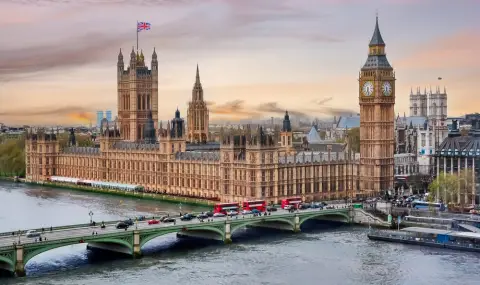Richard Montgomery worked at the coal-fired power station in Ratcliffe on Soar for 43 years, reports German public broadcaster ARD. The man, of course, is not happy that his longtime workplace is closing its doors tonight. Montgomery says he's proud to have worked here. He believes that he has been useful to his country. But now that era is coming to an end, he says. "We must look forward."
This power plant is huge. It provides electricity to two million households. In its best years, 3,000 people worked at the plant. Today is her last working day.
Gas: a cleaner and cheaper alternative
The UK has many reasons for shutting down coal-fired power plants, explains German public law media. At the beginning of the millennium, much more serious attempts to improve air quality began to be made there. Coal-fired power plants like this needed to be modernized. This, in turn, made coal-fired electricity more expensive.
Gas is the cleaner and above all cheaper alternative to coal, explains Jess Ralston from the UK think tank Energy and Climate Intelligence Unit. "The UK gets gas in the North Sea, so it makes economic sense to end coal power," she says. In 2022, 38% of electricity in the country was from gas. In addition, UK electricity consumption has been falling in recent years, while wind power has been added to the energy mix.
Renewables are more attractive
"Renewables are now competitive and attractive for investment," Ralston told ARD. That is why we are switching from coal to gas, and also to renewable energy, as gas deposits in the North Sea may soon be exhausted.
In Germany, 26 percent of electricity still comes from coal plants, but also 32 percent from wind power. However, the country has very few gas plants and no longer uses nuclear power. By comparison, in the UK wind power is smaller and nuclear accounts for 15 percent of the total energy mix. The British continue to build nuclear power plants, but it is extremely expensive, and there remains the big problem of processing the waste.
The UK aims to redistribute its energy mix so that by 2035 it reduces carbon dioxide emissions to an absolute minimum. The new Labor government also wants to expand solar power generation. As well as again facilitate the construction of wind turbines in rural areas. According to Ralston, this would be an option mainly due to the fact that the UK has a number of large-scale electricity storage projects. The world's largest electricity storage facility is being built near Manchester.
For many, this transition is emotional
Now people in Ratcliffe on Sore are feeling the energy transition very clearly. The eight large cooling towers will be demolished. The owner of the power plant, the German company "Uniper", wants to produce ecological hydrogen here.
Claire Taylor runs a bar in the area. For her, the end of the cooling towers will be an emotional moment. For her, the towers and the workers there are part of the landscape of her native region. Her father also works there. Now he will have to look for a new job.
Author: Christoph Prösl (ARD)
